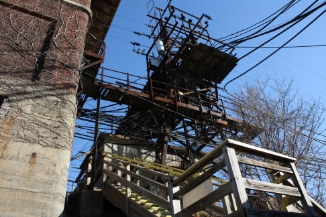 You get hurt on the railroad. You request immediate medical attention. You get to the medical facility, hospital or otherwise. You want to focus on the doctor. You want to discuss your symptoms, your prior medical history and your family medical history.
You get hurt on the railroad. You request immediate medical attention. You get to the medical facility, hospital or otherwise. You want to focus on the doctor. You want to discuss your symptoms, your prior medical history and your family medical history.But your boss is like a gnat in the room.
Tell him to leave because he’s already violated federal regulation.
The Federal Railroad Administration has long said it is a violation of federal anti-harassment regulations to enter the examination room of an injured employee except in two limited instances. But I am astounded how often it continues to happen and how many employees think they have to put up with it.
In this post I explain how the law prohibts this kind of supervisor action and what you should do if you experience it after a railroad injury.
First, the two exceptions to this no-supervisors-in-the-room rule:
- The injured employee issues an invitation freely, without coercion, duress or intimidation.
- The injured employee is unconscious or otherwise unable to effectively communicate material information to the physician and the supervisor's input is needed to provide such information.
That's it. No other exceptions.
A couple of common scenarios to consider:
- What if your physician tells the supervisor he can come in without your consent? NO!
- What if you let your supervisor in because he is looming at the door telling you or your spouse it is in your best interest to have the supervisor come in? NO!
- What if he walks in without permission, even though you don’t kick him out? NO!
The railroads know they're not allowed in, so watch out for the overly concerned boss, since he is fishing for an invitation.
It’s ok to say:
"Hey boss, get outta my exam room. Are you going to leave my exam room, or do I have to call the Feds?"
Specifically, the FRA says, “Harassment and intimidation occur in violation of § 225.33(a)(1) when a railroad supervisor accompanies an injured employee into an examination room, unless one or more of the exceptions listed in section II(B) of this notice exists.”
The FRA explained itself, saying,
FRA is concerned that when accompanied by a supervisor an injured employee may be discouraged or otherwise prevented from reporting an accident, incident, injury or illness. Similarly, a supervisor may influence the type or extent of medical treatment afforded the employee in an effort to affect the reportability of that injury. . . . Moreover, physicians are in the best position to evaluate the health of injured employees and the presence of a supervisor during such examinations would not, in most cases, add any value to the treatment of an employee and would, in general, be a distraction to both the employee and the physician.
Why does the company want to get inside your room?
First, the company wants to get you to commit to the details of the incident itself, usually asking you to sign a blank statement or including only the briefest of facts, like “injured lifting rail drill.” Down the road, that short answer will be used like this: “You never said the drill was too heavy to lift alone until after you hired a lawyer, right?”
Second, the supervisor is trying to avoid FRA reportability, including avoiding prescription medication where possible. Never mind that this is your suffering we're talking about.
And what if the supervisor does come in?
Why, then you file a whistleblower complaint with the Department of Labor under 49 U.S.C. §20109 for interfering and intimidating you, or possibly for failing to provide “'prompt medical attention”.
For more on how the law protects you, read: 10 Rights of Railroad Workers.
Photo by Marc Wietzke









